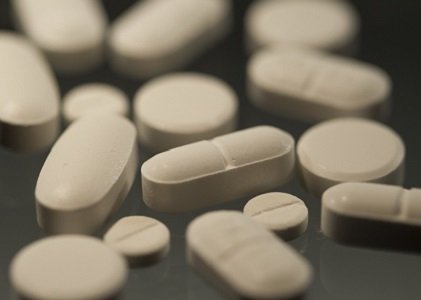(CNN) — More potential good news for people who regularly take a low-dose aspirin: Women who took one had a lower risk of breast cancer, according to a study published in the journal Breast Cancer Research on Monday.
The study used data from more than 57,000 women who were part of the California Teachers Study.
In the 23% of women who reported using low-dose aspirin regularly, researchers saw a 20% reduction in the risk of developing HR-positive/HER2 negative breast cancer, some of the most common forms of the disease.
The risk was inversely associated with taking a low-dose aspirin three or more times a week, compared with those women who had no regular low-dose aspirin use.
Women who took other nonsteroidal anti-inflammatory medications such as ibuprofen did not see as much of a difference, nor did those taking a regular high-dose aspirin. Previous studies have showed mixed results in breast cancer impact among women who took a regular high-dose aspirin.
Aspirin is already known for its potential to reduce other kinds of cancers and cancer deaths, particularly in people at risk of colorectal cancer.
US Preventive Services Task Force guidelines recommend that certain people take low-dose aspirin regularly to reduce the risk of cardiovascular disease and colorectal cancer. But not everyone can take it; for example, it’s not recommended for people with bleeding diseases such as Crohn’s or ulcers, as it can increase bleeding.
The new study did not look at why there might be an association between lower cancer risk and aspirin, but author Leslie Bernstein, a professor in the Division of Cancer Etiology in the Department of Population Sciences at the Beckman Research Institute of the City of Hope Comprehensive Cancer Center, said one reason may be because aspirin can lower inflammation.
“Simply things like obesity or inflammatory conditions are a risk factor for breast cancer, so this may be one reason it could help,” Bernstein said.
She also says research has showed that aspirin works as an aromatase inhibitor. Breast cancer is often treated with medication that is a stronger form of aromatase inhibitor; it stops the production of estrogen, which can stimulate the growth of hormone-receptor-positve breast cancer cells.
When Bernstein read about the potential inhibitor impact of aspirin, she wondered whether there would be a connection to lowering breast cancer risk. Her colleague Christina Clarke started looking through the data and saw the association noted in this study.
“Of course, more research, including clinical trials, is needed to see if this is the case,” Bernstein said.
Nancy Cook, a professor in the Department of Epidemiology at Harvard University who also researches aspirin’s impact on cancer, published a study in 2013 that found a reduction in colorectal cancer after 10 years of low-dose aspirin use but found no association with reduction in breast cancer.
In that study, “it is possible that the lack of effect is due to the alternate day low dose we used, but data from other randomized trials generally do not support an effect on breast cancer,” she said in an emailed statement, so the current study’s result is different.
She also cautioned that before adding a low-dose daily aspirin to your morning routine, remember that the current study is merely observational.
“That means it cannot determine cause and effect,” Cook said. “The meta-analyses that the authors cite are also mainly based on observational data. On the other hand, large observational studies sometimes are able to detect effects in some groups or for more rare outcomes that trials are not empowered to see, so these studies are still valuable.”
